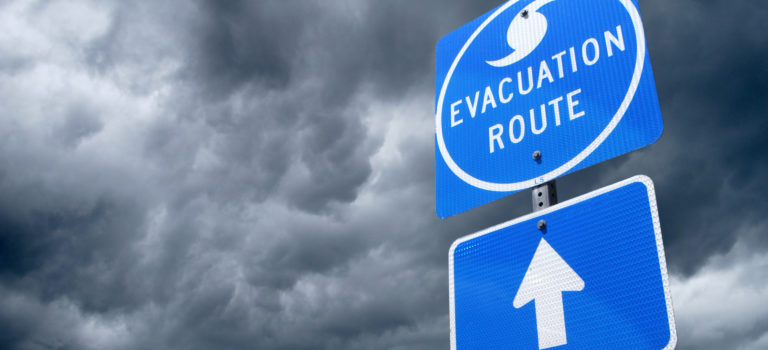Hurricane season is here, and pregnant women should take extra precautions to ensure their health and safety. Unlike many other natural disasters, hurricanes typically come with warnings, providing you enough time to be prepared. Creating an emergency plan can help keep you and your loved ones safe should a storm hit.
While each family’s emergency plan may vary, there are some important things to remember when putting one together. The American Red Cross and FEMA suggest considering the following:
Know your risk.
Your risk of danger depends on factors such as where you live, the structure of your home and your personal circumstances. People who live on or near the coast are at a higher risk for extreme winds and flooding. People who live more inland are at risk for wind, thunderstorms and flooding.
Due to the drop in barometric pressure, pregnant women are at risk of pre-term and false labor. Knowing your risks will help you determine if and when you should evacuate.
Know what to pack.
When preparing for a hurricane, be sure to stock enough supplies for at least 72 hours. Key items to have include water, non-perishable foods, flashlights and batteries. If you are pregnant, be sure to have a copy of all medical and immunization records, all prenatal vitamins and medications, and contact information for the health care provider. For more information about what to pack, click here.
Know where to go.
If you are ordered or choose to evacuate, be aware of the local hurricane evacuation routes. Take time to review a map and locate possible alternate routes in the event one way may be closed or blocked. It is also important to have a destination in mind; knowing where you are headed is less stressful and helps you determine the best route to take.
Once you reach your destination, be sure to notify necessary personnel that you are pregnant and gather information regarding the location of hospitals in the area and how to get there should the need arise.
Know who to contact.
In advance, create and gather paper copies of information like important phone numbers, insurance policies, banking information and medical records, should you need that information at any time.
Be sure to communicate with your doctor and make certain they are aware of your plans and where you will be going. If you are close to your delivery date or have a high risk pregnancy, ask your doctor if it’s safe to travel or if you should seek shelter at a hospital.
If you choose to evacuate, be sure to bring a copy of your prenatal care records and immunizations, all current medications and the name and telephone number of your doctor should treatment be necessary. If you choose to seek shelter at a hospital, be sure to contact the facility in advance. Call the hospital and confirm they are accepting people and have room available. It is also important to bring all medications and medical records along with your baby bag.
Every disaster is different and may require you to respond differently. Stay informed by paying close attention to all local news and weather advisories. Take head to necessary warnings and enact your plan when the time comes.
As a storm approaches and preparing becomes more immediate, it can often cause additional stress. Remember to take steps necessary to reduce stress and prevent the onset of preterm labor.

